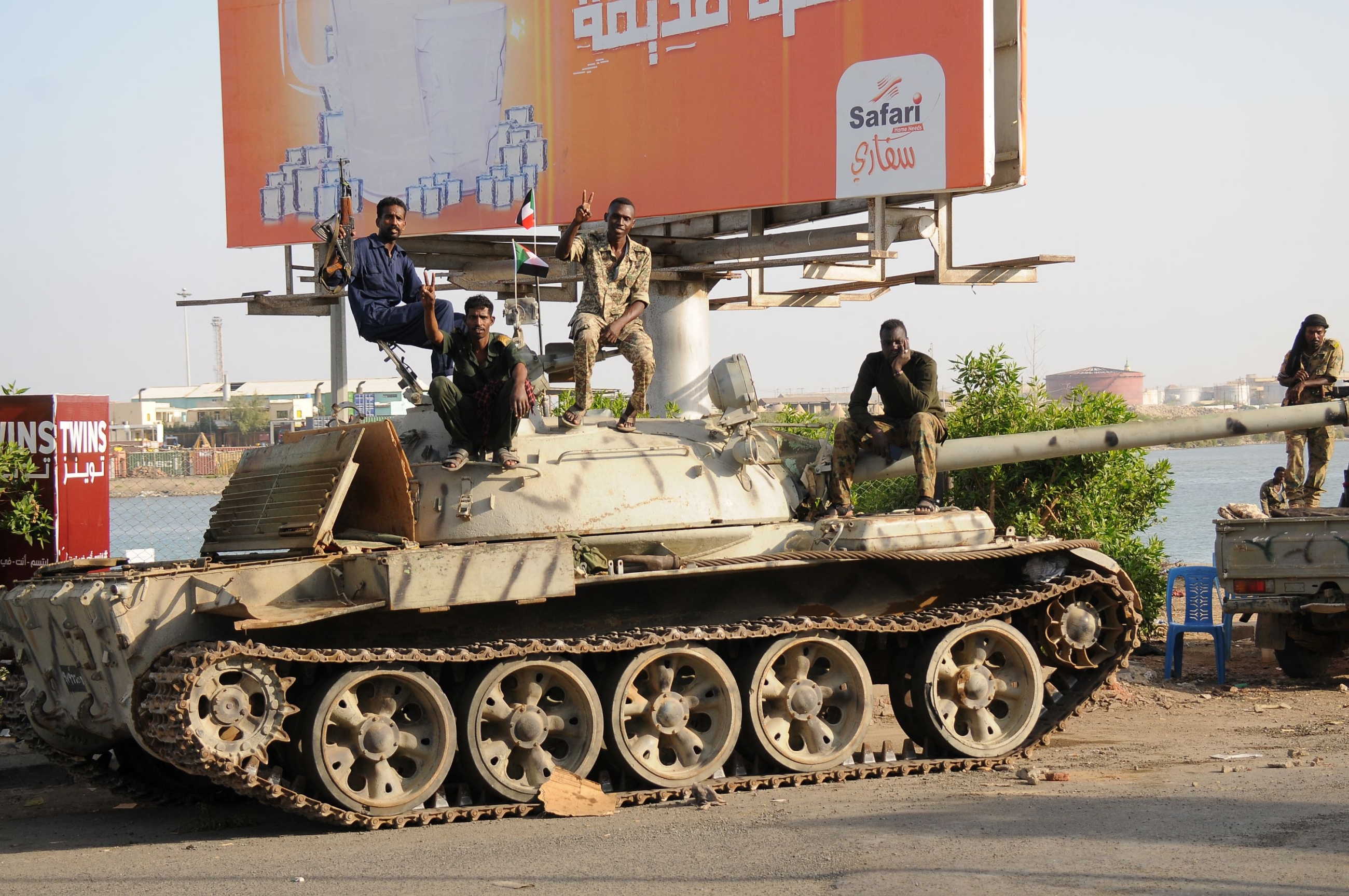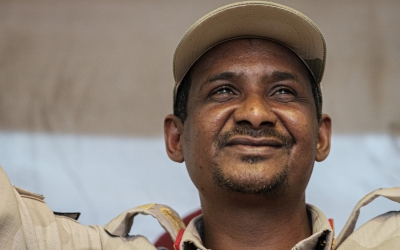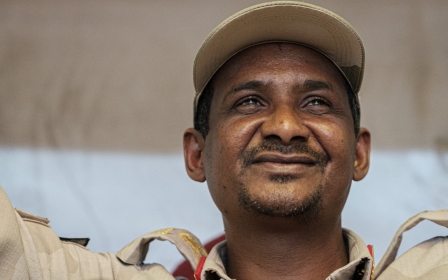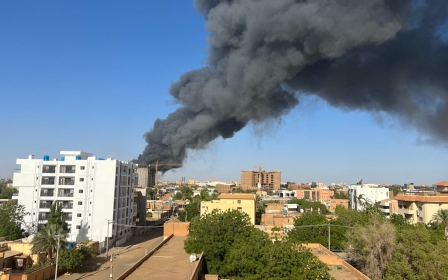Sudan turmoil enters a second week as foreign nationals evacuated

Fighting in Sudan has continued into its second week, as foreign governments enacted plans to evacuate their citizens from the conflict-ridden country.
Eid al-Fitr celebrations marking the end of Ramadan saw a moderate let up in the violence, but despite an agreed three-day ceasefire between the army and its rivals, the Rapid Support Forces (RSF), locals still reported fighting across the country.
At least 400 people are thought to have died since fighting broke out between the two groups on 15 April, sparked off by plans to integrate the paramilitary RSF into the army.
The army, commanded by de facto head of state Abdel Fattah al-Burhan, announced on Friday that it had "agreed to a ceasefire for three days" to "enable citizens to celebrate Eid al-Fitr and allow the flow of humanitarian services".
The announcement came following calls by UN Secretary-General Antonio Guterres and US Secretary of State Antony Blinken a day earlier.
New MEE newsletter: Jerusalem Dispatch
Sign up to get the latest insights and analysis on Israel-Palestine, alongside Turkey Unpacked and other MEE newsletters
RSF commander Mohamed Hamdan Dagalo (better known as Hemeti) also said in a statement posted online that he had "discussed the current crisis" with Guterres, and was "focused on the humanitarian truce, safe passages and protecting humanitarian workers".
However, residents told Middle East Eye on Friday that fighting was ongoing.
Numerous foreign nations are drawing up plans for the evacuation of their citizens from Sudan - the United States, South Korea and Japan have deployed forces in neighbouring countries, while the European Union is also considering taking similar measures.
Saudi Arabia's foreign ministry on Saturday said it had begun evacuating Saudi citizens and nationals of "friendly" countries from Sudan.
"The first evacuation vessel from Sudan has arrived, carrying 50 (Saudi) citizens and a number of nationals from friendly countries," the official Al-Ekhbariyah television said.
Sudan's army also said on Saturday it had agreed to help evacuate foreign nationals from the country.
Eid celebrations interrupted
Aziz Syed Ahmed, a resident of al-Taif neighbourhood in the east of the capital Khartoum, told MEE that violence had marred the Eid celebrations.
"Those who remained went out this morning to perform the Eid al-Fitr prayer. But after an hour, RPG strikes and mortars continued [being fired], and are still going on," Ahmed told MEE on Friday morning.
Witnesses told AFP that fighting had continued into Saturday morning, after a lull on Friday evening.
Sudanese citizens living in Khartoum and its twin city Omdurman, which are home to over five million people, said they feared walking on the main roads, while shops are rapidly running out of essential goods and people can't access their cash.
While the World Health Organisation (WHO) said that 413 people had been killed and 3,551 wounded in the fighting across Sudan, the actual death toll is thought to be higher.
Some of the bloodiest fighting has taken place in Khartoum, with air strikes, tanks in the streets and gunfire in densely populated neighbourhoods.
Doctors Without Borders (MSF) also said that the conflict was particularly intense in Darfur, one of the poorest regions of Sudan, with one MSF doctor telling AFP "the situation is catastrophic".
The RSF was created in 2013 out of the Janjaweed militias, who gained notoriety for brutally suppressing rebels in Darfur in the mid-2000s and were accused of widespread human rights abuses.
Middle East Eye delivers independent and unrivalled coverage and analysis of the Middle East, North Africa and beyond. To learn more about republishing this content and the associated fees, please fill out this form. More about MEE can be found here.





